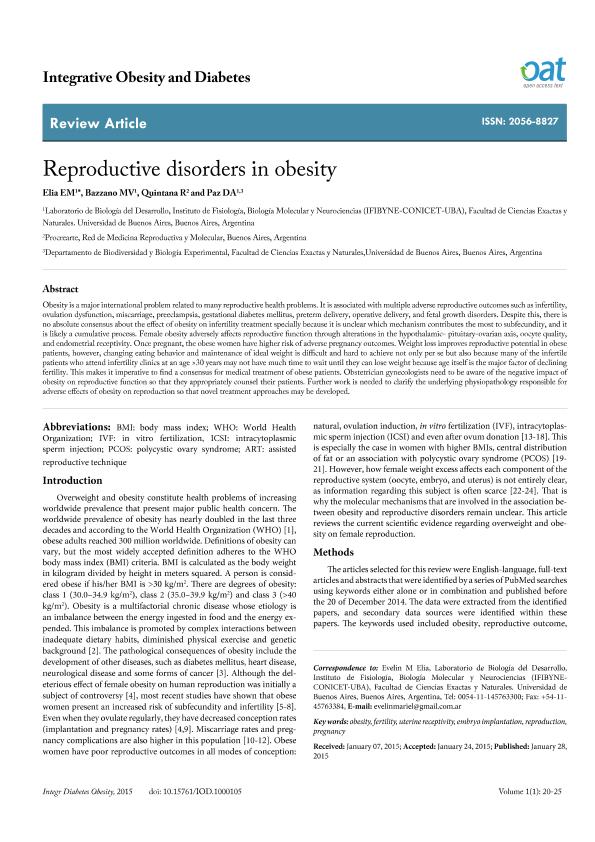Artículo
Reproductive disorders in obesity
Fecha de publicación:
01/2015
Editorial:
Reproductive Healthcare Ltd
Revista:
Reproductive Biomedicine Online
e-ISSN:
2056-8827
Idioma:
Inglés
Tipo de recurso:
Artículo publicado
Clasificación temática:
Resumen
Obesity is a major international problem related to many reproductive health problems. It is associated with multiple adverse reproductive outcomes such as infertility, ovulation dysfunction, miscarriage, preeclampsia, gestational diabetes mellitus, preterm delivery, operative delivery, and fetal growth disorders. Despite this, there is no absolute consensus about the effect of obesity on infertility treatment specially because it is unclear which mechanism contributes the most to subfecundity, and it is likely a cumulative process. Female obesity adversely affects reproductive function through alterations in the hypothalamic- pituitary-ovarian axis, oocyte quality, and endometrial receptivity. Once pregnant, the obese women have higher risk of adverse pregnancy outcomes. Weight loss improves reproductive potential in obese patients, however, changing eating behavior and maintenance of ideal weight is difficult and hard to achieve not only per se but also because many of the infertile patients who attend infertility clinics at an age >30 years may not have much time to wait until they can lose weight because age itself is the major factor of declining fertility. This makes it imperative to find a consensus for medical treatment of obese patients. Obstetrician gynecologists need to be aware of the negative impact of obesity on reproductive function so that they appropriately counsel their patients. Further work is needed to clarify the underlying physiopathology responsible for adverse effects of obesity on reproduction so that novel treatment approaches may be developed.
Palabras clave:
OBESITY
,
FERTILITY
,
OVARY
,
UTERUS
Archivos asociados
Licencia
Identificadores
Colecciones
Articulos(IFIBYNE)
Articulos de INST.DE FISIOL., BIOL.MOLECULAR Y NEUROCIENCIAS
Articulos de INST.DE FISIOL., BIOL.MOLECULAR Y NEUROCIENCIAS
Citación
Elia, Evelin Mariel; Bazzano, María Victoria; Quintana, Ramiro; Paz, Dante Agustin; Reproductive disorders in obesity; Reproductive Healthcare Ltd; Reproductive Biomedicine Online; 1; 1; 1-2015; 20-25
Compartir
Altmétricas




